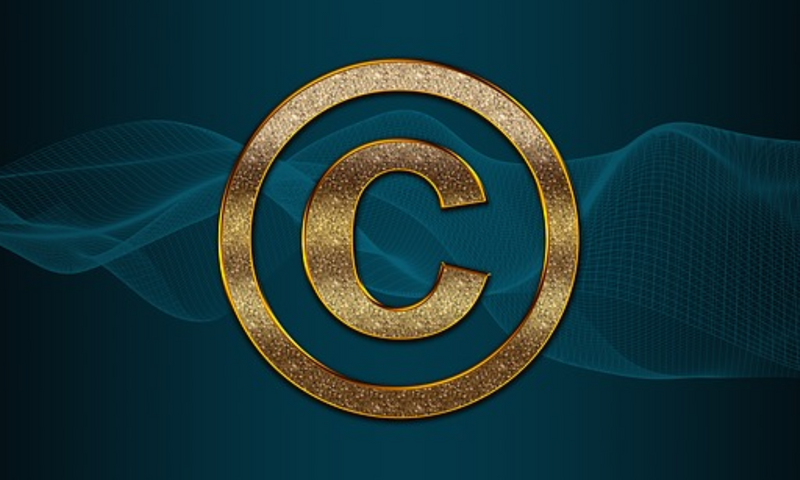 Image from Pete Linforth at Pixabay
Image from Pete Linforth at Pixabay
How many times have you heard on the news that someone is suing another company for copyright infringement?
Copyright laws exist to protect ownership over the things you create. Your creation could be a photo, drawing, painting, song, poem, a novel, or an editorial work.
Copyright laws have adapted to technology to include videos, motion pictures, electronic media, software, and multimedia works. If you created it, only you own the copyright. Only you can reproduce the work, prepare derivative works, distribute copies, and perform and display the work publicly if you choose to do so.
A copyright notice uses the © symbol, the word "copyright," or the abbreviation copr. followed by the year it was published and the author's name. Ex. © 2018 John Doe
Basic Rules Of Copyright

How long does copyright last? Different rules apply according to when the work was created. Works created on or after January 1, 1978 are protected for a term of the life of the author plus 70 years. Since 1989, works are protected regardless of a copyright symbol. Works published between 1923 and 1978 are protected 95 years from the publication date.
Any work published before 1923 is in the public domain. Works in the public domain may be freely used. Works in the public domain also include works where the copyright has expired, U.S. government documents, works without a copyright notice prior to 1989, a work not in a tangible form such as a speech or a comedy routine, or a work without sufficient originality.
Fair Use allows for limited use of materials for education and research purposes without seeking permission.
Quiz
Which creation would not be in the public domain?
Registering Your Copyright
Different countries have different registering agencies for copyright, and some require a fee. For example, The U.S. Copyright Office accepts registration and it must be filed before an infringement suit can be filed in the U.S. Court of Law.
However, the Berne Convention, short for the Berne Convention for the Protection of Literary and Artistic Works, introduced the concept that a copyright exists as soon as it is "fixed" (written, recorded, or created) rather than requiring registration. It's an international agreement that enforces a requirement that countries recognize copyrights held by their own citizens.
This reinforces the idea that not all creative works require protection. Although, protection is required for domestic copyright owners to file a suit of copyright infringement.
Quiz
When you take a gorgeous photo, do you automatically hold the copyright?
Did you know?
Take Action
Remember, using others' materials without permission is a crime, and can have serious consequences. When in doubt, always seek permission from the creator to use their creation freely.
Subscribe for more quick bites of learning delivered to your inbox.
Unsubscribe anytime. No spam. 🙂
Your feedback matters to us.
This Byte helped me better understand the topic.
